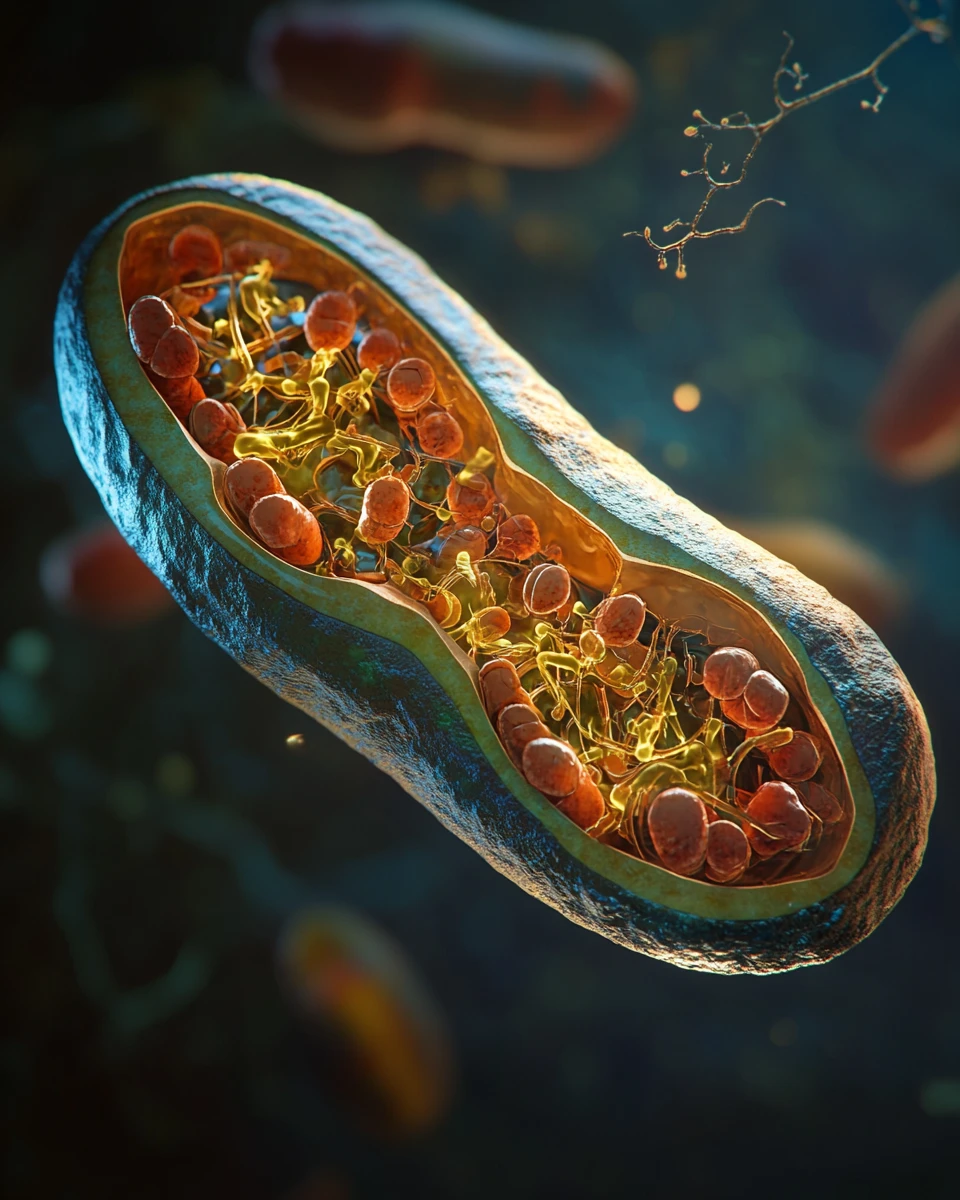

Coenzyme Q10 (or ubiquinone) is a fat-soluble substance that occurs naturally in human cells and plays a key role in cellular respiration and energy production.
It is involved in mitochondrial metabolism, where it helps synthesize ATP, the main molecule that supplies cells with energy.
Because of its importance to metabolism and cardiovascular health, coenzyme Q10 has become the subject of widespread scientific and medical interest.

Coenzyme Q10 and mitochondrial metabolism
Mitochondria, as the “energy stations” of cells, are essential for the normal functioning of the body.
Coenzyme Q10 supports the activity of mitochondrial enzymes, participating in the synthesis of energy, which allows cells to efficiently use nutrients.
When coenzyme Q10 is deficient, energy metabolism is impaired, which can lead to fatigue, a weakened immune system, and various diseases.
Research:
- A 2019 study showing that coenzyme Q10 supplementation can improve mitochondrial metabolism in patients with chronic fatigue (Littarru GP, Tiano L. Coenzyme Q10: an overview. Curr Clin Pharmacol. 2010;5(3):102-110).
- Coenzyme Q10 deficiency may contribute to diseases associated with mitochondrial dysfunction, such as neurodegenerative diseases and cardiovascular disease (Hargreaves IP. Coenzyme Q10 as a treatment for neurodegenerative diseases: a review. Neurodegener Dis. 2016;16(1):16-20).

Coenzyme Q10 and cardiovascular health
Coenzyme Q10 plays an important role in maintaining cardiovascular health. It helps normalize blood pressure, improves heart and vascular function, and reduces oxidative stress.
Recent studies have shown that coenzyme Q10 supplements can significantly reduce the risk of developing diseases such as hypertension and heart failure.
Research:
- A 2014 study found a positive effect of coenzyme Q10 on lowering blood pressure in patients with hypertension (Rosenfeldt F, Hilton D, Pepe S. Coenzyme Q10 in the treatment of heart failure. Biofactors. 2013;39(3):318-325).
- Coenzyme Q10 has also been shown to improve vascular function in patients with heart failure (Sheldon R, et al. Effects of coenzyme Q10 on hypertension. Hypertension. 2010;55(3):755-763).

Effect of coenzyme Q10 on skin condition
Coenzyme Q10 is known for its antioxidant properties, which helps protect skin cells from damage caused by UV radiation and other external factors.
It reduces the appearance of wrinkles, promotes skin moisturization, and accelerates the healing of damage.
The inclusion of coenzyme Q10 in cosmetic products promotes skin appearance and health.
Research:
- A 2016 study showed that topical application of coenzyme Q10 can slow skin aging and improve skin elasticity (Kohno Y, et al. Effect of Coenzyme Q10 on skin wrinkles and elasticity. Skin Pharmacol Physiol. 2016;29(6):296-301).
Table 1: Health Benefits of Coenzyme Q10
| Advantage | Description |
|---|---|
| Energy support | Participates in the synthesis of ATP, providing cells with energy. |
| Cardiovascular health | Reduces oxidative stress, improves heart and vascular function. |
| Antioxidant skin protection | Reduces the appearance of wrinkles, improves skin elasticity. |

Role of coenzyme Q10 in disease prevention
Coenzyme Q10 has the ability to prevent various age-related diseases.
It reduces oxidative stress, which is responsible for many chronic diseases such as diabetes, hypertension and heart disease.
There is also evidence of its positive effects on lowering cholesterol levels and improving vascular health.
In addition, coenzyme Q10 supports the immune system by reducing inflammation in the body, which is especially important in chronic diseases.
Recent studies suggest that coenzyme Q10 supplements may be beneficial for the prevention of cardiovascular disease, as well as for recovery from surgery and injury.
Table 2: Food sources of coenzyme Q10
| Product | Coenzyme Q10 content (mg/100 g) |
|---|---|
| Beef | 3.0 |
| Chicken | 1.8 |
| Broccoli | 0.8 |
| Nuts | 0.5 |
| Alcoholic beverages | 0.3 |

Conclusion
Coenzyme Q10 is an important component that supports normal cellular function, and its role in mitochondrial metabolism and cardiovascular health is undeniable.
It has numerous beneficial properties, improving not only the body’s internal processes but also the appearance of the skin.
Incorporating coenzyme Q10 into your diet or cosmetics can help improve your health and quality of life.




